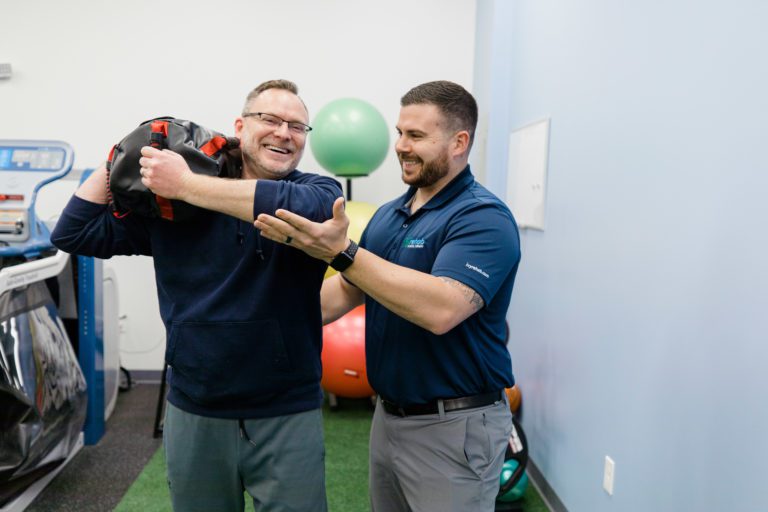
4 Types of Workers Compensation Benefits
Workers’ Compensation is a type of insurance that provides medical care and wage benefits to an employee who sustained a work-related injury or illness. A work-related injury or illness is a physical condition caused, provoked, triggered, or accelerated by the employee’s job tasks or work environment.
As an employee, you have the right to understand the benefits you may be eligible for if you sustain a work-related injury. The goal of the insurance plan is to ensure coverage for employees’ expenses while they recover from their work-related injuries or illness. Every state has its own Workers’ Compensation benefit laws. Understanding your state’s specific laws on will help provide clarity.
Why is it important for Employers to have Workers’ Compensation Insurance?
Every state manages Workers’ Compensation benefits in its own way, and every claim is unique. A Workers’ Compensation claim can impact several people, including the:
- Employee
- Employee’s family
- Employee’s co-workers
- Employer
It causes an elevated level of uncertainty for all those involved in the claim, including the number one question: who will be financially responsible?
When an employer has Workers’ Compensation insurance, it reduces their liability for potential lawsuits for the employee’s work-related injury or illness, providing the employer a level of protection. Workers’ Compensation insurance will assist the employee with covering costs associated with the claim. At the same time, they recover from their injury and develop a plan with the employer for return to work. It is crucial to identify your state laws regarding Workers’ Compensation coverage.
What are the four types of workers’ compensation benefits?
The primary goal of Workers’ Compensation benefits is to cover the costs related to their work-related injury or illness. These benefits consist of coverage for four areas:
- Medical care
- Rehabilitation
- Disability coverage for lost wages
- Death benefits for injuries or illnesses related to a work injury
Workers’ Compensation begins paying immediately after a workplace injury occurs. It is essential to report your injury to your employer directly to start your claims process. This requires the date of injury.
1. Medical Care
Workers’ Compensation benefits cover all necessary medical care expenses in all states, including:
- Physician fees
- Medical tests
- Diagnostic studies
- Emergency room visits
- Surgical procedures
- Nursing care
- Prescribed medical devices
- Medication
2. Rehabilitation
Rehabilitation benefits pay for ongoing medical care and ancillary services, including:
- Physical therapy
- Occupational therapy
- Speech therapy
- Work conditioning
- And many other therapeutic types of care necessary to help the injured employee cope and recover from their injury
These benefits cover the cost for the injured employee to gain the training, care, and necessary skills to return to work safely. Suppose an injury or illness prevents an employee from returning to their current job; in that case, their rehabilitation benefits may cover costs for employees to learn new skills or retraining to assist the employee in becoming qualified for a different job. Disability benefits compensate for lost wages while an injury or illness makes the employee unable to work.
3. Disability Coverage
When determining the level of disability coverage, several factors are included in that decision:
- Employees’ physical capabilities to perform their essential job tasks
- Amount of time they can tolerate positional activities to perform essential job tasks
- How much the overall impact of the injury or illness has on their ability to perform essential job tasks safely and effectively
The severity of the disability is defined as either a temporary or permanent disability and either partial or total disability.
4. Death Benefits
Most states provide death benefits to people related to the deceased worker and were financially dependent on that person to compensate for the loss of financial support. In a case where the injury results in the loss of the employee’s life, Workers’ Compensation helps cover funeral expenses and provides the beneficiaries with death benefits. Since the individual state determines Workers’ Compensation, it is best to reference your state’s guidelines to learn more.
Who is eligible for workers’ compensation benefits?
If you were at work, performing your job for your employer, and either sustained an injury or became ill because of exposure in your work environment, this would be considered a work-related injury, and you may be eligible for workers’ compensation benefits. However, benefits are not available for a if the employee is hurt or sickness occurs when they are not at work.
In general, most employers are required by state laws to have Workers’ Compensation insurance. There are some exceptions for employers based on how many employees they employ, the type of business it is, and the type of work the employees are doing. If you sustained a workplace injury or illness and are unsure, the first step should be to check with your human resource department or employer directly to find out if they have benefits. Based on your employee status, they will be able to determine if you are eligible for these benefits. Once you establish if the employer has benefits and you are eligible for benefits based on your employment status, you will want to report your work-related injury to your employer, who will file a Workers’ Compensation claim as soon as possible.
Information about the incident that may be required can include but is not limited to the following:
- Date of injury
- Type of injury
- Body part injured
- Anticipated employee return date
- Witness to injury
Most states will require filing an injury claim between 30 and 90 days after an incident. It is essential to know your employer’s policies regarding this timeframe. Timely filing of the incident report will assist with the overall claims process.
See related: What is Occupational Health?
Do you get full pay on workers comp?
Permanent and isability benefits compensate for lost wages while an injury or illness makes the employee unable to work. Depending on your state’s regulations, Workers’ Compensation benefits pay a percentage of their weekly wage. Each state has a maximum weekly rate for an employee to be paid. It is good to understand the rules and benefits for your specific state. It is best to ask your employer or the human resource department directly if they have any information and can provide you with resources for your state’s coverage. The other factor determining how much you will be paid is based on the degree of severity of the injury. After your claim is reviewed, they will determine if the injury or illness is considered total or partially disabled, which will impact the amount you will be paid.
Ivy Rehab Physical Therapy can help
The Ivy Rehab Network specializes in treating patients with work-related injuries. We understand this process can be overwhelming. Our goal is to expedite the rehabilitation process without compromising the quality of care. While working to treat the injury, we offer personal, one-on-one care based on the essential job demands that will allow the employee to return to work safely and promptly.
We have a sophisticated outcomes database that incorporates both clinical and stay-at-work outcomes to ensure the highest level of clinical care. Our Workers’ Compensation team offers centralized scheduling & authorization to ensure injured employees’ evaluations are scheduled within 48 hours of the referral. To schedule an appointment, call 1-877-5-Ivy-Comp (1-877-548-9266) or request an appointment online by visiting our website.
Article By: Ashley Catapano, DPT, CCI, CEAS I, II, CIRS, FCE Evaluator
Director of Workers Compensation & Industrial Services
Ashley began her Physical Therapy career 16 years ago. Ashley’s clinical passion involves treating patients who have sustained work-related injuries. She has extensive training in Workers’ Compensation, Industrial Services, Employer Wellness, Injury Prevention, and Occupational Medicine population. She believes in providing outcomes-orientated solutions for musculoskeletal care and pain management. She places a high emphasis on safe, effective return to work for injured workers. She currently specializes in Workers’ Compensation and Industrial Services. She serves as Ivy Rehab’s Director of Workers Compensation & Industrial Services.
The medical information contained herein is provided as an information resource only, and does not substitute professional medical advice or consultation with healthcare professionals. This information is not intended to be patient education, does not create any patient-provider relationship, and should not be used as a substitute for professional diagnosis, treatment or medical advice. Please consult with your healthcare provider before making any healthcare decisions or for guidance about a specific medical condition. If you think you have a medical emergency, call your doctor or 911 immediately. IvyRehab Network, Inc. disclaims any and all responsibility, and shall have no liability, for any damages, loss, injury or liability whatsoever suffered as a result of your reliance on the information contained herein.
